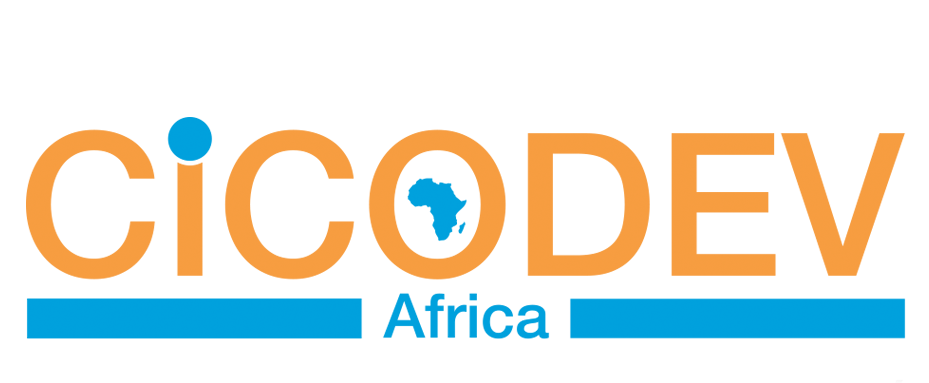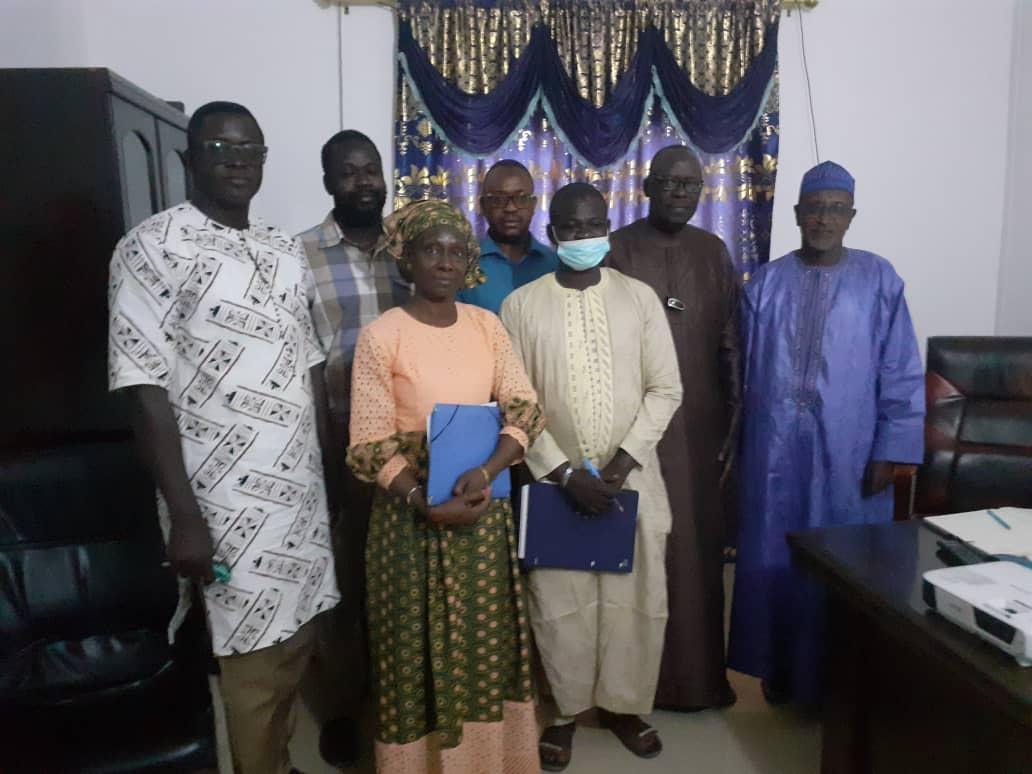The Pan-African Institute for Citizenship, Consumers and Development (CICODEV Africa) conducted field visits between November 23 and 26, 2020 in the regions of Kaffrine, Kaolack and Fatick. And then between December 8 and 11, 2020 in the regions of Thies and Sedhiou. This visit is part of the implementation of the CICODEV Africa Steering Committee’s orientations relating to reinforcing the organization at the grassroots level and included in the 5-year (2019 – 2023) strategic development plan.
The implementation of this orientation implies a greater territorialization of the organization’s programs and the strengthening of its actions at the community level. This justifies the visit to the CICODEV Focal Points (FPs). It consisted, firstly, of inquiring about their working conditions and environment (the actors involved in the conduct of their activities), sharing with them the vision, missions and programs/projects so that they can become imbued with the scope of the mission that awaits them as CICODEV Focal Points with all that this representative responsibility entails. At the same time, meet with administrative, health and customary authorities, and conduct outreach activities (community conversation) to popularize endogenous health financing mechanisms (EHFM/MEFS) and to promote closer ties between organized groups and mutual health organizations.
The mission team was led by the Executive Director, Mr. Amadou Kanouté and included the Health Policy and Advocacy Officer, Mr. Ibrahima Pouye, Mr. Moustapha Diagne, the Administrative and Program Support Officer, the Research Officer, Mrs. Awa Coulibaly, the Communication Officer, Mr. Amadou Ndiaye, and the Accountant, Mr. Albert Nattack.
During the community conversations, the aim was to sensitize the organized groups so that, in addition to government funding, a community approach to health could be affirmed. The goal of the activity is to popularize the MEFS in order to enable communities to remove the financial barrier to accessing quality health care by enrolling in Mutual Health Organizations. It also aims to promote mobilization of domestic resources. The 3,500 FCFA fee for membership in the mutual health organization is often not affordable for vulnerable populations. This is why CICODEV encourages endogenous health financing mechanisms.
CICODEV’s strategy is generating enthusiasm everywhere.
A great deal of interest was noted during community conversations with populations who are committed to the cause of MEFS. They constantly brandished their mutual health membership cards, proof of their determination to be covered by the UHC. “Our organization has always had a fund that we certainly used for mutual aid, but we didn’t know that with this fund we could have health coverage. It is thanks to CICODEV, which facilitated our relationship with a mutual health organization, that we understood this,” explains Mrs. Mariama Cissé, in a tone of appreciation during the community conversation held in Sédhiou.
In the Thiès region, Ms. Coumba Bâ, President of the Board of Directors of the Dabakh mutual health organization, was happy to join the CICODEV mission team so that she could meet with the authorities. She was pleased with the work of the CICODEV focal point who managed to convince 265 members of organized groups to migrate to the Dabakh mutual health organization. “CICODEV has strengthened us and we are inspired by its approach,” she explained.
For the groups in the various localities, it’s a godsend to be able to get treatment while avoiding catastrophic expenses. The organized groups present during the community conversations clearly understood the benefits of the UHC and constantly waved their membership cards to show their support for CICODEV’s cause, which consists of no longer keeping money in the solidarity funds and using it to treat a single person, but rather to go and enroll in mutual insurance organizations in large numbers. The MEFS are gaining in visibility and are now known to health decision-makers (government, social protection agencies, TFPs) as a relevant and efficient means of mobilizing domestic resources without putting additional unfair or undue pressure on households that already contribute significantly to the payment of health care costs. The expected impact is an increase in the enrolment rate of citizens into mutual health organizations for access to health care and the reinforcement and sustainability of health financing through endogenous mechanisms and resources.
An inspiring strategy
Referring to its theory of change, CICODEV believes that if communities are empowered and organized to access health, they will be able to demand adequate and effective financing from governments for its sustainability and they themselves will be able to contribute to health financing more efficiently. They will then be better equipped and prepared to demand quality services that meet their needs. Also, the coverage rate against disease risk will increase, thus promoting equity. Ms. Lobé Cissokho, Vice-President of UNAMUSC and President of the “oyofal paj” mutual health organization in Kaolack said she was inspired by CICODEV’s strategy for enlistment: “CICODEV inspires me a lot in my daily work. At first the focus was on family memberships, but we realized that it was very slow. CICODEV’s strategy is based on group memberships and it is working well.
The authorities’ commitment to support the focal points
The visits were an opportunity for the CICODEV team to meet with and raise awareness among local authorities (Governors, Prefects); health authorities (regional and district chief doctors); politicians (Mayors, Departmental Councils) and technical services (Regional UHC Agency, Community Development Services, Social Action, Union of Mutual Health Organizations and Mutualists) about health financing through the MEFS.
- William Manel, Governor of the Kaffrine region, praised the quality of the win-win partnership between the State and civil society organizations. He urged the CICODEV focal point to share activity reports and invited him to attend the Regional Development Committee (RDC) meetings. “This will allow my services to be able to mention in our reports the work you are doing through enlistments in the mutuals,” said the Governor of the Kaffrine region.
These field visits made it possible to solicit the authorities’ commitment to support the work of CICODEV’s 16 Focal Points, distributed in Senegal’s 14 regions. This is in line with the objective of CICODEV’s Health Program to contribute to the emergence of a strong and resilient health system that is adequately resourced and meets the needs of the most disadvantaged populations.

